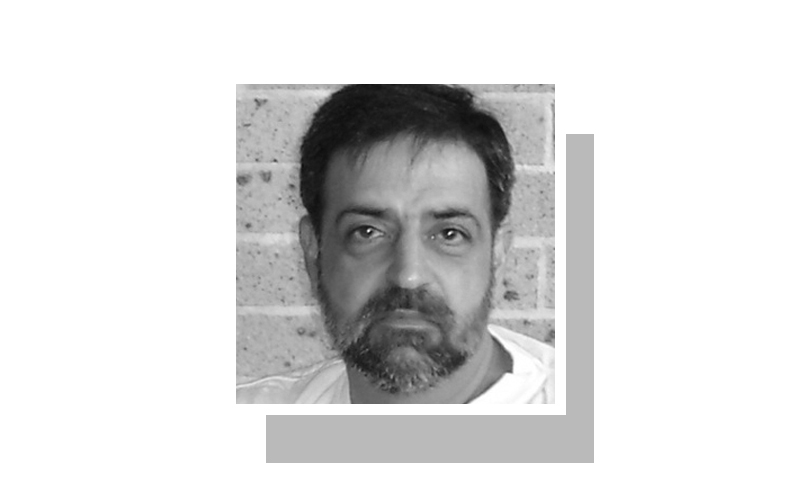WHAT if they gave a war and nobody came? Exactly who first raised this question is disputed, but that does not detract from its validity.
It may have been prompted by a remarkable — even miraculous — event that occurred 100 years ago today.
The battlefields in France were by then already a mess, although much of the mass slaughter that defined the First World War still lay ahead. In some quarters it had been claimed that the war would be over by Christmas. But by the time the festive season rolled along, almost everyone involved had realised that they were in it for the long haul.
On Christmas Eve, though, something unusual was afoot in sectors along the western front, where British and German troops were entrenched within shouting distance. Letters written by British soldiers suggest they were taken by surprise when lights appeared on the opposite side, and then silhouettes of the kaiser’s troops as they emerged, some with their arms stretched out to indicate they bore goodwill rather than guns.
According to some accounts, it was the sound of the hymn Stille Nacht that alerted British soldiers to a change in mood across the battle lines. And they apparently responded with carols of their own, possibly including Silent Night. As the Germans tentatively walked into no-man’s land, the British reciprocated.
‘Enemies’ thus met up in the snow, shook hands and exchanged greetings as well as cigarettes and sweets. This wasn’t a solitary event: unexpected civility broke out in several places across the battlefront. In letters home, soldiers even spoke of engaging their adversaries in impromptu football matches.
A century ago, enemies met up in the snow and shook hands.
Both sides also took the opportunity to bury their dead. But once the festivities were over, they went back to killing each other.
It stands to reason that at least in some cases the resumption of hostilities must have been fraught with misgivings. Recalling the Christmas truce in his memoirs, Otto Hahn, a German platoon commander who eventually went on to win the Nobel prize in chemistry, writes that when the orders to resume firing were given, “We asked our company commander where the enemy was, since we could not see any and therefore did not know where to shoot.”
There is some evidence that many junior officers either participated in the fraternisation or tacitly encouraged it. The generals, though, were for the most part livid. How could you possibly conduct a war amid unauthorised outbreaks of camaraderie and reminders of a shared cultural heritage?
Orders were promptly dispatched decreeing that this sort of nonsense must never be repeated. And for the most part it wasn’t.
It’s not hard to see why the masters of war were so perturbed by the prospect of participants in mortal combat realising that their foes were simply fellow human beings.
That is a perennial problem, of course, for all purveyors of hate — not just in the context of open warfare or terrorism, but even in respect of tensions over class, ethnicity, immigration, refugees and the like. The possibility of perceiving objects of hatred or fear as no different from oneself inevitably undermines the bases of conflict.
Some commentators on the centenary commemorations of the Christmas truce have argued that romanticising the couple of days when all went quiet along sectors of the western front detracts from the catastrophic consequences of the First World War for all concerned.
That’s a valid point. On the other hand, the brief respite from the exigencies of organised brutality is one of the only commendable takeaways from that utterly reprehensible exercise in industrial-scale slaughter. Another would be the poets who gave voice to their apprehensions, often in trenchant verse from the trenches.
Perhaps foremost among them was Wilfred Owen, killed in the last days of the war, who in Strange Meeting envisaged a posthumous encounter with a foe who harboured the same idealistic dreams: “… Whatever hope is yours,/ Was my life also. I went hunting wild/ After the wildest beauty on earth…”
It would be imprudent, even perverse, to deny the Christmas truce the status it deserves as a singular shining moment in four years of darkness and despair. There’s something to be said, however, for the contention that it should not be allowed to overshadow more consequential instances of fraternisation on the eastern front, where the tsar’s foot soldiers were able to share with troops representing his German cousin the enticing revolutionary propaganda of the Bolsheviks.
It was working class revolts in Germany that ultimately persuaded the kaiser to abdicate and facilitated the end of the war, almost exactly a year after the second Russian revolution of 1917.
Among the Germans officers who resented the truce, and even more vehemently despised the popular actions that effectively spelt the end of the hostilities, was a certain Corporal Adolf Hitler.
Published in Dawn December 24th , 2014
































